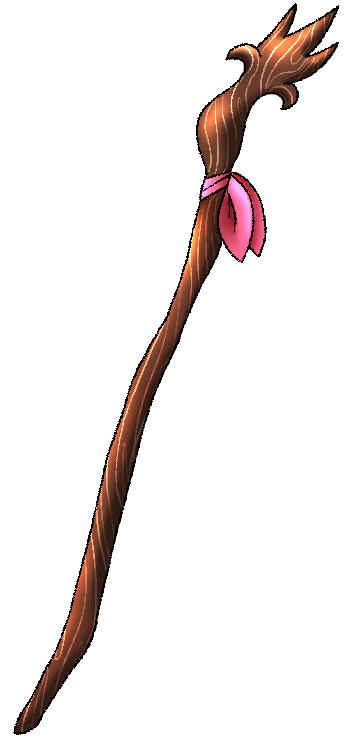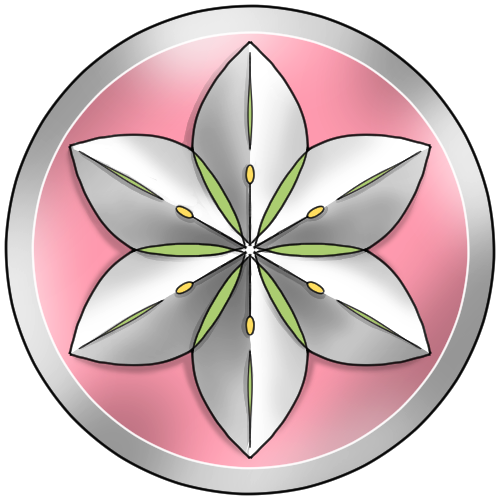"Gracidea" redirects here. For the flower, see Gracidea flower.
History
Origins
Aristeian Civil War
Symbols of House Gracidea
House Gracidea's patron is Shaymin, in both forms. Their primary symbol is the six petalled Gracidea flower, their namesake. The annual Gracidea festival is held at the beginning of May, often a sign that spring has arrived.

Photograph of the staff, Alate
Alate
Alate is a staff that appears to have been carved from a rich, dark brown wood. One end ends in a shape resembling an antler, or perhaps a wing, with five points. A pink ribbon is tied around its shaft. It is one of five Aristeian Relics said to have been created by a blood-oath ceremony of loyalty sworn by Ceresia and her fellow generals to the House of Ariste, and only one of two such relics whose location is still known. It remains in the possession of the leader of House Gracidea, and is used to keep order at their council meetings.
It is unique in that it is the only Aristeian relic on record to have been a staff, and therefore non-bladed. Any forensic sampling has determined that the material the staff is made of is plant based and organic in nature, but does not match any existing plant genetic records on file.
Alate is a term from herbology (or entomology) used to refer to items that appear to have wings. Alate itself is from the Latin word ala, for wing.


